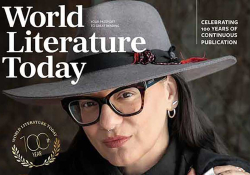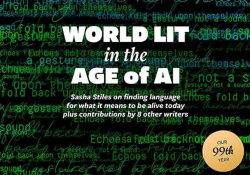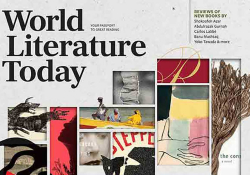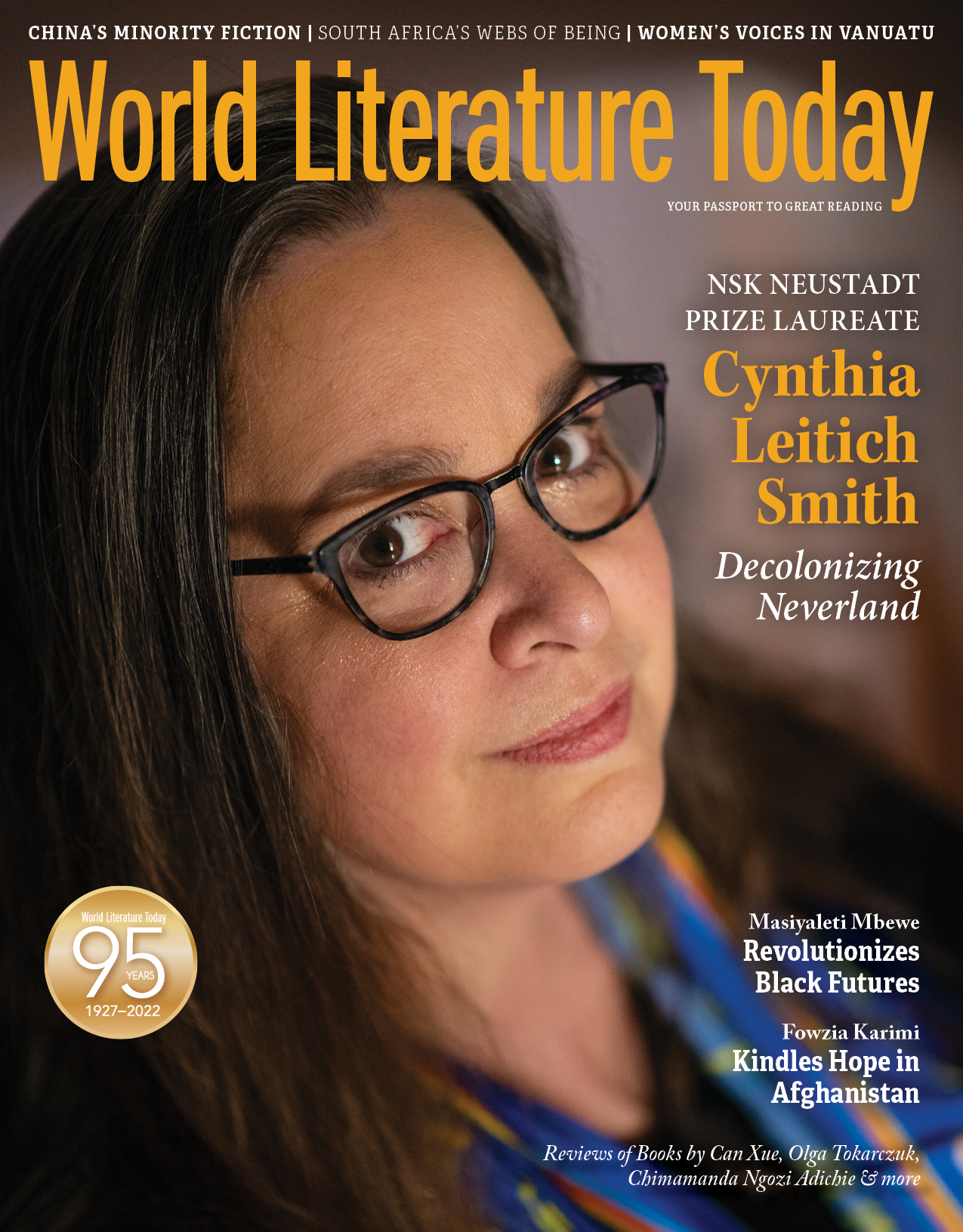Editor’s Note
 WHAT DOES A Babylonian epic—which dates to the twenty-first century bce in its earliest preserved versions—have to say to readers of world literature in the twenty-first century ce, some four thousand years later? In Sophus Helle’s brilliant new translation of the Gilgamesh epic (Yale University Press, 2021), an ancient text hailed by Wai Chee Dimock as “speaking to our mortal loves and fears with undying force,” readers have a timely opportunity to reconsider a masterpiece of world literature that is also a sobering portent of the Anthropocene.
WHAT DOES A Babylonian epic—which dates to the twenty-first century bce in its earliest preserved versions—have to say to readers of world literature in the twenty-first century ce, some four thousand years later? In Sophus Helle’s brilliant new translation of the Gilgamesh epic (Yale University Press, 2021), an ancient text hailed by Wai Chee Dimock as “speaking to our mortal loves and fears with undying force,” readers have a timely opportunity to reconsider a masterpiece of world literature that is also a sobering portent of the Anthropocene.
In his forthcoming book Literature for a Changing Planet (Princeton University Press, 2022), scholar Martin Puchner situates Gilgamesh in a broader comparative history that characterizes world literature as “an archive of environmental exploitation and a product of a way of life responsible for climate change,” depending on “millennia of intensive agriculture, urbanization, and resource extraction, from the clay of ancient tablets to the silicon of e-readers.” What strikes me as revelatory in Puchner’s book is his convincing claim that literature itself is coeval—and in certain senses complicit—with the rise of cities and their role in exacerbating climate change. The damp clay upon which the cuneiform version of Gilgamesh achieved immortality (i.e., when archaeologists discovered it in the ruins of Ashurbanipal’s library of Nineveh in 1851) is the same clay fired into bricks that were used to build the walls and dwellings of Gilgamesh’s ancient city of Uruk, which encompassed seven thousand acres.
Reading Helle’s Gilgamesh with Puchner’s thesis in mind, I marvel at how the epic’s concerns resonate as much today as they did with the ancient Sumerians and Akkadians. At the outset, the prologue emphasizes Gilgamesh’s omniscience and omnipotence as king of Uruk and the city’s magnificent walls that separate it from the hinterlands outside, in particular the watering hole frequented by the wild man Enkidu. In the central episodes, Gilgamesh befriends Enkidu, and they embark on a quest to murder Humbaba, the keeper of the sacred Cedar Forest, then kill the Bull of Heaven sent to punish them. Having laid Humbaba’s forest to waste, Gilgamesh and Enkidu float the timber down the Euphrates to fire the brick kilns and construct the doors, rooftops, and other embellishments of Uruk’s dwellings.
When the gods sentence Enkidu to die, Gilgamesh—his body broken and heartsick with grief—then wanders beyond the ends of the known world in a quest for immortality, felling three hundred more trees to ferry him across the Waters of Death until he reaches the immortal Uta-napishti. Gilgamesh seems to double down as the eco-villain in his quest: “I had not even reached Shiduri when my clothes gave out,” he tells Uta-napishti, “so I killed the bear, hyena, lions, leopard, cheetah, / deer, ibex, beast, and herd of the wild; / I ate their meat and flayed their skins.”
After hearing Uta-napishti’s story of a great flood sent by the gods to punish humanity, Gilgamesh sets out for home with Ur-shanabi, Uta-napishti’s boatman, and along the way seizes a plant that promises to “win back his life force.” Upon losing the plant, Gilgamesh sits down crying, “tears streaming down his cheeks,” and asks Ur-shanabi one of the saddest questions in all of literature: “For whom did I spill the blood of my heart?” Does Ur-shanabi ever answer the question? The epic doesn’t tell us, and the story proper ends with Gilgamesh boastfully showing him the great walls of Uruk. Thus Gilgamesh, having dried his tears and seemingly forgotten about Enkidu, ends his journey.
As Puchner notes, Gilgamesh is acclaimed at the outset as both a warrior-king and a writer: “He came back from far roads, exhausted but at peace,” the opening lines tell us, “as he set down all his trials on a slab of stone.” As the latter-day inheritors of the literature of the Anthropocene, what will be our equivalent to the library of Nineveh? A hundred years from now, will our descendants still be able to decipher what was in our hearts?
Daniel Simon









